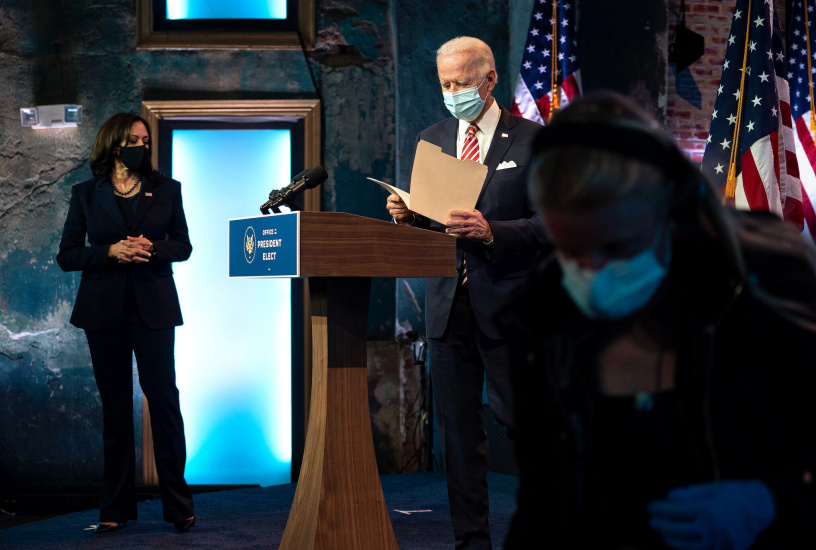Joe Biden’s Presidency Will Not Be a Walk in the Park for Iran

There has been little doubt about the exceptional gravity of this year’s US presidential elections for Iran. With Donald Trump’s maximum pressure policy, embodied in draconian sanctions against Iran, complemented with four years of fiery rhetoric against Tehran and instigating hostility against the country, Iranians are counting down to his departure from the White House.
But to what extent is it possible that Biden’s presidency tilts the situation in favor of Iran? The answer is: highly unlikely. While the difference in the mindset of Biden and Trump is irrefutable, and the Democratic president-elect’s administration follow a different path, our optimism should not prevail over realism.
Firstly, Biden and his political team have repeated in their comments and policy papers their decision to return to the JCPOA, the 2015 nuclear deal between Iran on the one side, and five UN Security Council members plus Germany on the other side. Nonetheless, they have tied their return to a number of issues, including Iran’s missile program and regional actions. Biden has personally pointed to Iran’s human rights record as a topic to be brought up in future negotiations. Thus, we should not invest excessive hope in a quick reversal of Tehran-Washington ties under Biden, rather, we should be aware that once again we are going to engage in complicated negotiations where neither the agenda nor the roadmap are clear.
Second, the day after Biden’s definite victory is officially announced, Washington’s Dulles Airport will be hosting back to back flights carrying politicians from all around the world, who will start intensive lobbying and bargain with the new administration. Persian Gulf Arab states who have heavily invested in Trump’s increasing hostility towards Iran in the past four years, as well as Israel and European partners of Washington, will be the first to arrive. In these circumstances, it seems very unlikely that Iran, which has no official lobby in Washington, could carve out its own space.
For most countries, lobbying will have one certain goal: to remove their country from any likely US interventionist agenda. These countries include China, Russia, and perhaps even North Korea. Beijing wants to cast attention away from the South China Sea dispute, while Russians want Biden administration to shelve the Ukraine case, and North Korea will pursue the nuclear standoff.
Countries hostile towards Iran such as a number of Arab states, Israel, and Canada will also work their hardest to turn Iran into Joe Biden’s foreign policy top priority. In other words, both enemies and friends of Iran will try to push Iran towards the top of Biden’s agenda.
Fourth, Biden’s efforts will focus not on reorienting Washington’s Iran policy, but on mending fences with long-time allies including the EU, Americas, and traditional Washington partners. Biden will definitely try to revive alliance with the EU and reinforce NATO. Unlike Trump, he does not want to see a fragmented EU. Multilateralism and bolstering US’ presence in the global market, not reverting Trump’s Iran policy will be Biden’s foreign policy.
Fifth, Tehran-Washington tensions have piled up in the last forty years, without any clear solutions. Tehran’s nuclear program is not Tehran and Washington’s only bone of contention. Washington opposes Iran’s foreign policy in its totality, and feels that its lengthy negotiations with Iran have failed to resolve problems in a comprehensive way. The JCPOA also failed to deliver the optimistic vision Americans had, with Iran insisting on its regional policies and signing trade deals with the EU and China, instead of American companies.
Even if Americans engage in another round of negotiations with Iran, their main goal will be to gain what they failed to address in the previous talks. At any rate, Tehran and Washington are deeply divided over a range of fundamental issues which will not be solved overnight. The US president-elect will focus on resolving problems with Iran in its totality, and will keep pressures at the current level until attaining its goal.
* Ali Mousavi Khalkhali is Iranian Diplomacy’s chief editor.

